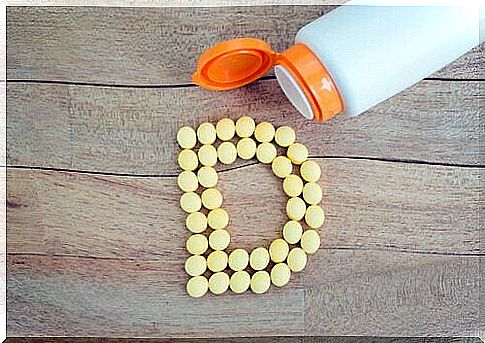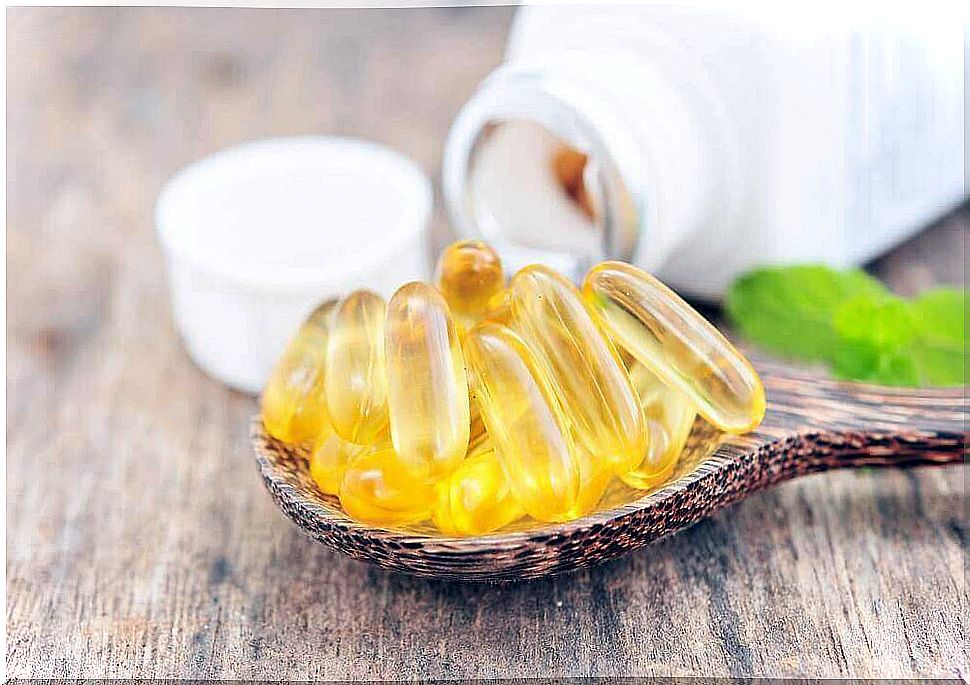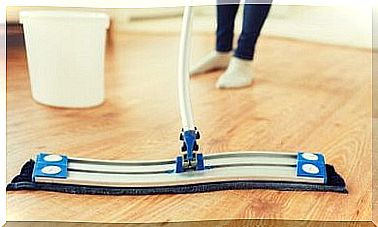Should We Take Vitamin D As A Dietary Supplement?

Vitamin D plays an important role in our body: it helps us absorb calcium. It also plays a fundamental role in the nervous system, muscles and immune system. A deficiency of vitamin D can therefore lead to serious bone problems such as osteoporosis and rickets. In this article you can find out when you should take vitamin D and how.
What is vitamin D?
Vitamin D is a fat-soluble provitamin (like vitamins A, E and K) that enables the absorption of calcium in the body. In fact, it acts as a hormone in the metabolism of this compound.
Some diseases, such as rickets, osteomalacia and osteoporosis, are linked to calcium deficiency, but their origin is more precisely the result of poor absorption of this mineral (Ca) due to a lack of vitamin D.
This poor absorption may be due to:
- Deficiency of this vitamin in the diet.
- Too little sun.
- A liver or kidney disorder.
- Some medicines can also interfere with absorption.
Vitamin D deficiency

If our body does not get or absorb enough vitamin D, this will lead to a reduction in bone density.
- This problem can cause osteoporosis or more frequent bone fractures.
- It can also lead to weakness in the legs and muscles, pain and more serious conditions of osteomalacia.
- In children, this deficiency tends to cause rickets, a disease that softens and bends the legs.
Also, on a more subtle level and in a way that is more difficult to detect, vitamin D deficiency can affect cases of diabetes, high blood pressure, autoimmune diseases and cancer.
However, not enough research has been done on the latter case.
How do we get vitamin D?
We can get vitamin D in three different ways:
- Through the skin, by sunbathing. In this case, our body naturally makes this vitamin.
- Through the diet, by eating foods rich in this vitamin.
- Through supplements.
The best source: the sun

When we expose our skin to the sun, we receive ultraviolet (UV) rays, which activate an essential compound for the formation of vitamin D.
This then becomes available to the body in the same way as if we had eaten it in foods.
- It is recommended to expose our skin to the sun without protection for a maximum of 30 minutes.
- The ideal option is to start with 5 minutes a day and increase this gradually every week until our skin gets used to the sun’s rays.
- What is never wise to do is expose our skin to the sun for several hours without protection.
Sources in foods
By eating foods that contain vitamin D, we absorb it in the gut thanks to bile support. This confirms how important good liver function is when it comes to the absorption of this vitamin.
In the same way, we can say that poor liver or gallbladder function leads to a significant imbalance in vitamin D absorption.
Animal products that have lots of vitamin D are as follows:
- Fish with a high fat content (salmon, tuna, sardines or mackerel)
- Tran
- Beef and turkey liver
- Egg yolks
- East
- Butter or ghee
- Colostrum
We can also find some vegetable sources of vitamin D:
- Mushroom
- Avocado
- Broccoli
- Almonds
There is also a large selection of foods fortified with vitamin D, such as milk, margarine and cereals. However, it is always much better if the vitamin is present naturally or in a dietary supplement.
When are supplements advisable?

If you live in a place with little sun and you can not expose your skin to the sun often enough, or in winter, it is necessary to strengthen your intake with a vitamin D3 supplement.
This is especially important for people who do not eat products of animal origin. It is also advisable if we tend to suffer from low or poor calcium absorption, or during menopause if a reduction in bone density is detected.
In general, this vitamin is well tolerated in doses up to 2000 IU. However, we should not exceed 1000 IU without medical supervision.









